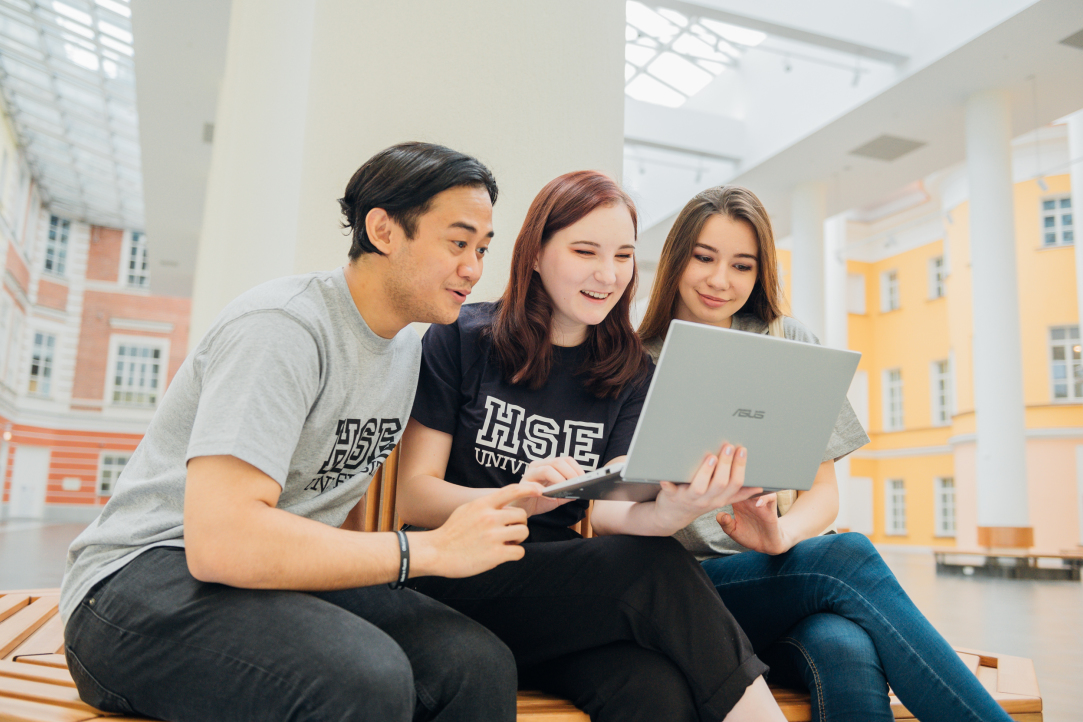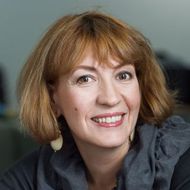Summer University 2021: Bringing International Students and Lecturers Together Online

On August 20, the second online HSE Summer University came to an end. Students from 22 universities in 13 different countries enrolled in its courses. The Summer University 2021 was a truly international event, and while it was a little different from previous ones, it was no less unique.
Since 2014, the International Summer University has been held annually in Moscow. After transitioning to an online format in summer 2020, this year’s online events were attended by students from around the world. Holding another Summer University without onsite courses in Moscow was a real challenge for organizers and for those who wanted to study with HSE University this summer.
Updated Courses
The online format of the Summer University led to a reduction in the number of applications from students who wanted to visit HSE University and Russia. This year, the academic component of the programme was the most important deciding factor for international students. The main criteria for choosing SU courses this year were the academic appeal of the curricula, the highly qualified professors, and the world-famous status of HSE as a leading university. The curricula of last year's courses were updated to account for the new format.
New Tools for Attracting Students
With the support of the HSE eLearning Office, special meet-up events were held for Coursera students and professors of the HSE Summer University. Participants of the online meetings were able to attend a short lecture on one of the SU courses and speak with a professor about the subject for free. The events allowed Coursera students to communicate directly with HSE professors and learn more about the online Summer University programme.

Oksana Chernenko, Director for Innovations in Education
‘This year, for the first time, we organized special open meet-up events to draw attention to the Summer University programme. Students from all over the world were able to communicate live with HSE professors whose courses they had already attended on Coursera. This is a unique opportunity to ask questions of a professor and communicate with colleagues from other countries in a synchronous format.’
Old Aspirations in New Circumstances
While online platforms have become a symbol of the pandemic and closed borders, they have also expanded the possibilities of cooperation with partner universities. This year, the idea of a HSE and UPF summer school collaboration became a reality, with joint open lectures made possible by the new online format. Modern online educational platforms have provided an opportunity to go beyond the classrooms of summer courses in Moscow and Barcelona. This new and unusual collaborative experience received positive feedback from students and professors.

Prof. Jordi Garcia-Ojalvo, Department of Experimental and Health Sciences, Universitat Pompeu Fabra (UPF) – Barcelona
‘The collaboration between the Summer Schools of HSE and UPF has been, in my opinion, an excellent opportunity to interact with new scholars and to meet highly motivated students outside my natural sphere. My students at UPF enjoyed enormously the lecture by Professor Nadezhda Shilova on what behavioural economics can teach us about how humans perceive time. I also had a wonderful time preparing my lecture on how brain rhythms modulate human decisions. I think this collaboration is a win-win scenario for HSE and UPF faculty and students. I hope we can continue with it in the future. Thank you!’

Nadezhda Shilova, Associate Professor at the Vysokovsky Graduate School of Urbanism
‘Behavioural economics (and not only that) teaches us that people always manage to break the constraints they encounter. And by breaking these constraints, they move forward and improve their welfare. That's exactly what happened this year: COVID-19 restrictions forced us to hold classes online instead of offline, breaking the constraints of time and distance. But that's not all—we also had new opportunities and possibilities. One of them was the opportunity to organize exchange lectures. I'm very thankful to Professor Garcia-Ojalvo, a physicist who gave a great lecture on the physical reactions of brain rhythms and decision making, which let us understand how we can see and measure brain reactions. The lecture I gave to students of the “Time: Human Views on the Progress of Existence” course (Barcelona International Summer school, UPF) examined how economists think people perceive time, and I hope it also added to Professor Garcia-Ojalvo’s course by showing how the perception of time can be incorporated into decision making from a theoretical point of view.’
Due to the uncertainty of the ongoing global situation, it is not yet clear whether the next Summer University will be held online or in person. However, the format of the programme doesn’t matter—students, teachers and the team of the Summer University are ready for anything. This year, some students participated in the Summer University for the second year in a row. Some participants were so inspired by their studies on the courses that they are thinking of enrolling in HSE Master's programs. Even better, almost all of them want to take part in the HSE International Summer University again.
Participants’ Feedback

Istvan Peter Miskolczy, University of Aberdeen
‘This was my first time taking part in any of your summer programmes. To my delight, it did meet my expectations. My course contained a lot of information on EU-Russia relations, but it was easily digestible and I would totally recommend it to anyone who has any interest in international affairs, EU member states, and Russia. The teaching was clear, concise, interesting and informative. I would definitely recommend it to others. As for myself, I am mainly interested in political topics and courses, so I would consider joining HSE’s Summer University again if there are other courses on international affairs.’

Ihanainen-Alanko Sini, University of Jyväskylä
‘Although Professor Zuev is a nice man, he is demanding. That is why I am particularly pleased. And even though I was really tired under the pressure of a heavy last academic year, lots of studies, and the July heat, I did my best!
Because the course is every day, it would be great to get some basic knowledge on Coursera or send recorded lectures in advance. A short guide open to students before and during the course would encourage more discussion.
I would recommend all of HSE's courses to my friends. And the Summer University as well. It was a nice atmosphere—Professor Zuev is good with that, he respects students, and he knows a lot about many topics. It was a pleasure to be in his lectures.’

Roel van der Linden, Jagiellonian University
‘I really enjoyed the Summer University! I think the lectures were very interesting and inspiring. The SU did definitely meet my expectations! The only bad point was that it was online, of course, but this is inevitable in the current situation. The collaboration with the UPF was also very nice! The guest lectures that I could follow were very good as well. Also, I like the fact that you still tried to make it social, even though we could not come to Moscow. This is also really appreciated. I would definitely recommend it to others, and hopefully I can participate again next year.’

Jia Tong, University of Tromso
‘As a returning student who attended both the 2020 and 2021 HSE Summer School four-week Russian course, I enjoyed every aspect of it, including interactive language practice activities in grammar, pronunciation, and vocabulary. This year’s summer course also helped me to hone my skills in different topics such as colour, time, room arrangement, location, and furniture. Thanks to this experience and the work of dedicated HSE staff in organizing the summer school, I got the chance to consolidate my Russian knowledge. I am also grateful for the dynamic and practical Russian course, plus the online events related to Russian culture and customs. HSE’s Russian course is highly recommended!’
Oksana Chernenko
Director for Innovations in Education
Nadezhda Shilova
Associate Professor, Vysokovsky Graduate School of Urbanism

